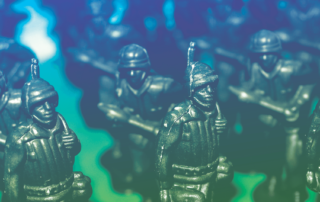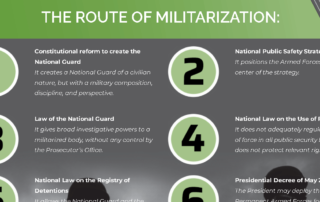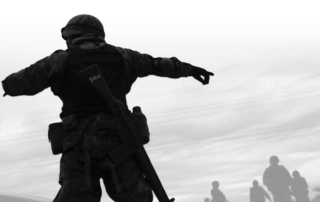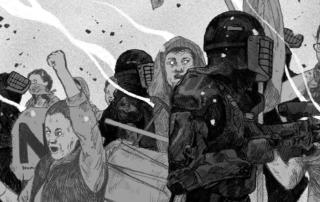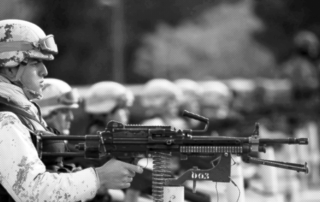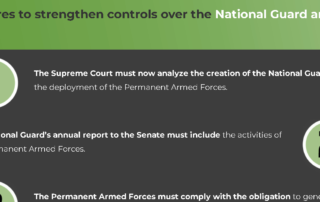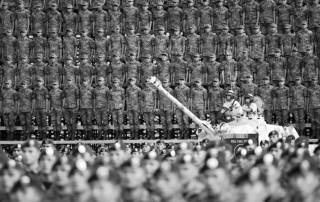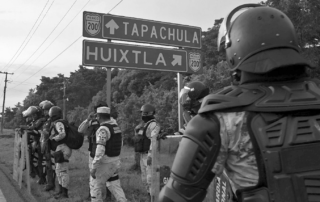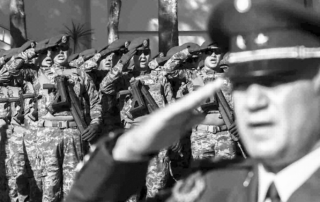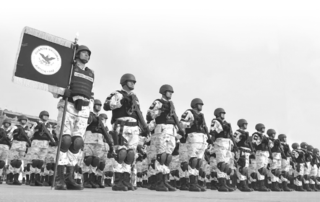The judicial review of the ongoing militarization process
The legal changes adopted to provide the Armed Forces with the legal framework they have demanded for years have not been approved without resistance. Although the constitutional reform is not contestable, practically all the other modifications have been.
In some of these processes, federal courts of first instance have already issued the corresponding sentences. In the case of the National Law on the Use of Force (LNUF) the SCJN has already ruled. In others, the Highest Court has yet to analyze and resolve the constitutional challenges filed. Among these, the following stand out:
The actions of unconstitutionality against the secondary laws of the National Guard presented during the previous leadership of the CNDH. The SCJN admitted the actions of unconstitutionality 62/2019, against the Law of the National Guard; 63/2019, to combat the National Law on the Registry of Detentions; 64/2019, referring to the National Law on the Use of Force; and 66/2019, regarding the law that regulates the National Public Safety System.
The CNDH –guided by narrow legal interpretations—did not challenge the May 2020 Presidential Decree, but the President of the Congress did, via constitutional controversy 90/2020. Although it was listed for review by the First Chamber of the SCJN in November 2021, the Justices decided to review it in their plenary session because of its relevance.
Regarding the Presidential Decree, civil society organizations filed various constitutional challenges or amparos. Especially relevant is indirect amparo judgment 390/2020-IV, filed against the Presidential Decree, since its resolution contained one of the most complete analyzes that have been carried out regarding said decree considering the obligations imposed by the Inter-American Court of Human Rights, thus showing that the Federal Judiciary can be a counterweight to militarization.
In addition, Centro Prodh filed a petition for amparo against the decision that the operational coordination of the National Guard in each entity depend on the commands of the respective military regions of the country. The amparo was admitted in October 2021 and is still pending.
On November 17, 2020, on behalf of several tseltal communities, Centro Prodh filed a claim for amparo against the construction of barracks for the National Guard in the ancestral territory of that indigenous people, for contravening Article 30 of the Declaration of the United Nations on the Rights of Indigenous Peoples which prohibits the militarization of indigenous territories. The lawsuit is still pending.
The first results of this process are worrying. The LNUF was not exhaustively analyzed by the SCJN and an attempt was made to resolve the Constitutional Controversy in one of the chambers of the Highest Court, without opening the discussion to public scrutiny.

